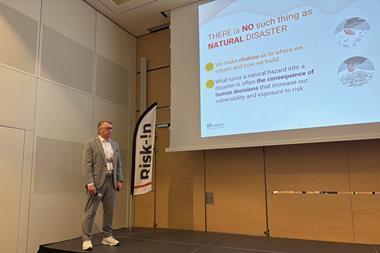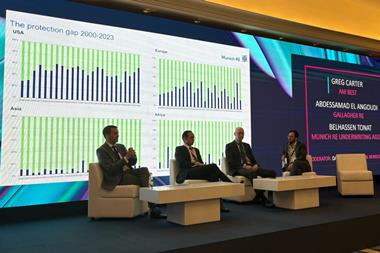“At the end of the chain is a guy with no knowledge of the product, driving an old unsafe truck, delivering your goods – and who knows whether that company is compliant” – Katoen Natie chief risk officer Carl Leeman
These days many businesses are outsourcing their transportation and logistics services. As a result, supply chains are expanding, both in terms of size and complexity. The services are not only being outsourced to new and emerging markets but to riskier locations.
This trend arises from cost pressures forcing directors to cut budgets. As a result, more and more businesses are looking at markets that can help them provide the same service but at a fraction of the cost. By doing so, however, they are exposing themselves to more litigious situations. Compliance and understanding local laws, for example, becomes a greater challenge. At the moment, rules about corruption, bribery and contingency payments are some of the biggest challenges. There are also issues such as a lack of language skills causing problems in Europe.
But the endless regulatory reforms do not help. For example, there has been a recent requalification around the labelling of dangerous goods in Europe; fire safety is far from uniform and there are changes to how you can store and transport products in the same continent or sometimes even the same country. This makes it increasingly difficult to remain compliant.
Additionally the environment is becoming increasingly litigious. There are several factors that contribute to this: the fact that authorities exchange information through a database makes it an even bigger challenge to avoid fines. In times of crisis the number of claims continuously increases; and there is also a culture in the Western world where people are suing each other much quicker – our society is becoming less and less tolerant.
It is difficult to reduce the risks in such tough trading environments. But it is paramount that businesses are selective about their choice of contractors, doing as much research as possible into them before hiring them.
Secondly, it is advisable that businesses prohibit their contractors from subcontracting without written approval – this will help reduce compliance risks.
The problem is you may hire a company that you feel is right for the job and later you find that the job has been sub-contracted to another business that has subsequently subcontracted out to another company in Asia, for example. At the end of the chain is a guy with no knowledge of the product, driving an old unsafe truck, delivering your goods – and who knows whether that company is compliant with all the necessary rules and regulations?
At Katoen Natie, we try to avoid such situations by issuing contracts to our outsourcing partners stating that they cannot subcontract without our written approval.





















No comments yet